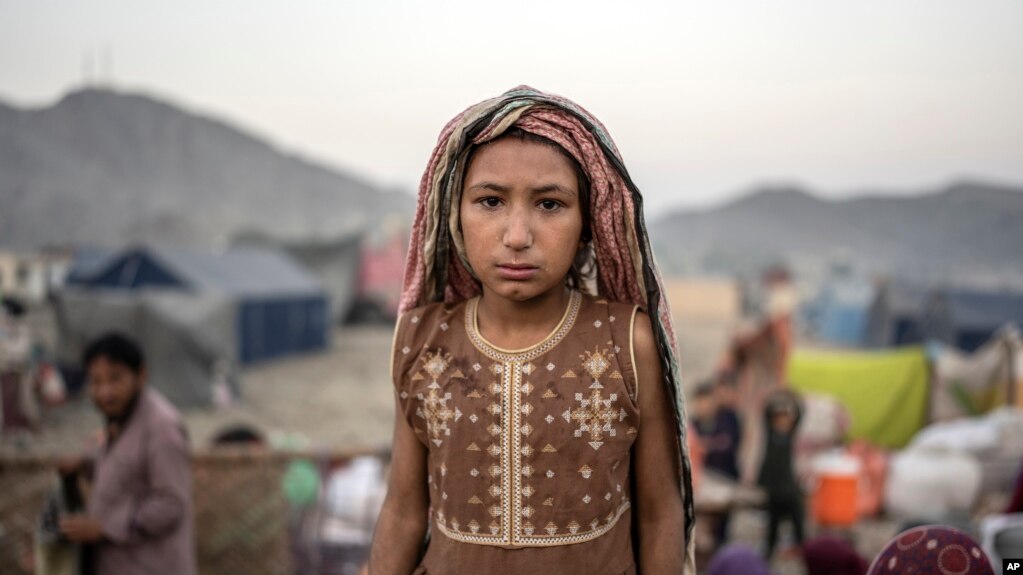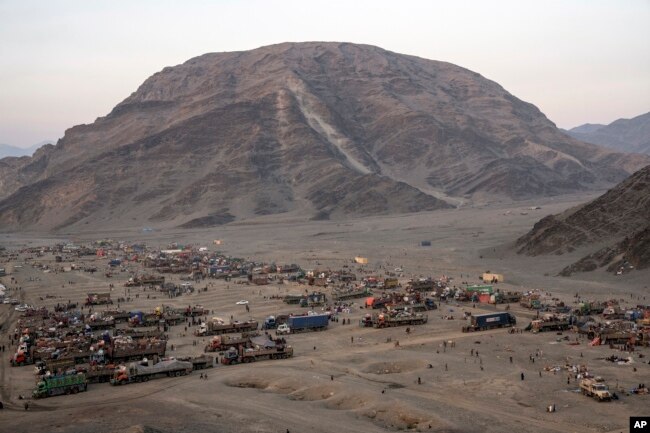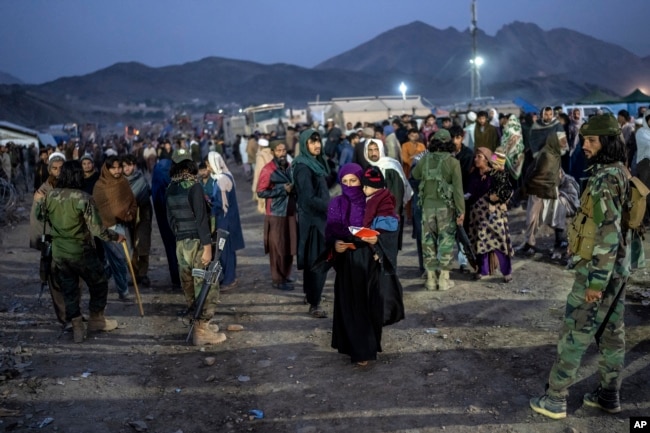Afghanistan’s acting commerce minister meets Pakistan’s foreign minister as Islamabad cracks down on undocumented refugees.
The Taliban’s acting commerce minister met Pakistan’s foreign minister in Islamabad this week, says an Afghan embassy statement, discussing trade and how the thousands of Afghan citizens Pakistan is expelling could take cash and other assets back to their homeland.
The meeting between Haji Nooruddin Azizi and Pakistan’s Jalil Abbas Jilani took place days after Pakistan said its move to expel more than a million undocumented Afghans was a response to the unwillingness of the Taliban-led administration to act against armed fighters using Afghanistan to carry out attacks in Pakistan.
Taliban officials say the attacks are an internal matter for Pakistan and have called on Islamabad to halt its deportation of Afghan citizens.
“Bilateral trade, especially the stranded goods of [Afghan] traders in Karachi port, smooth transfer of [Afghan] refugees’ properties to [Afghanistan] and related issues were discussed,” Afghanistan’s embassy in Islamabad said in the statement.
Afghan citizens returning to Afghanistan have said there are restrictions on the transfer of cash and property to Afghanistan from Pakistan, where many had built businesses and homes for decades.
Pakistan’s foreign office said Jilani conveyed the message that: “full potential for regional trade and connectivity can be harnessed with collective action against terrorism”.
Last month, Pakistan set a November 1 start date for the expulsion of all undocumented immigrants, including hundreds of thousands of Afghans. It cited security reasons, brushing off calls to reconsider from the United Nations, rights groups and Western embassies.
According to government figures, around 4.4 million Afghan refugees live in Pakistan, 1.7 million of them without valid documents.
Three more border crossings opened
On Monday, Pakistan opened three new border crossings to accelerate the repatriation in southwestern Balochistan province in addition to the main crossing in Chaman district, said Jan Achakzai, information minister for the provincial caretaker government.
The number of border crossings used to deport thousands of Afghans rose to five after the new facilities were opened. Currently, about 15,000 Afghans have been crossing the border every day from Pakistan. Before the crackdown, the figure was about 300.
Some 305,462 Afghan refugees have since left the country, authorities said. The majority, 209,550, crossed the border from the northwestern province of Khyber Pakhtunkwa, said Fazal Rabbi, a senior official overseeing the deportation process.International aid agencies have documented chaotic and desperate scenes among Afghans who have returned from Pakistan. They have raised alarm at the dire conditions many Afghans who have recently returned are facing with few resources as the cold winter season begins and say many are staying in crowded shelters near the border operated by NGOs and Taliban authorities.
“Many Afghans in Pakistan are now facing police raids and demolition of their homes without due process. Detainees have been denied the right to a lawyer and communication with family members, leaving loved ones in the dark as to their whereabouts,” Amnesty International wrote on X, formerly Twitter, asking Pakistan to immediately halt deportations to prevent further escalation of this crisis.
Achakzai, the information minister, said police in Balochistan in recent days had arrested more than 1,500 Afghans who had no valid documents.
A prominent Pakistani human rights lawyer, Moniza Kakar, said in the southern port city of Karachi that police had launched midnight raids on homes and detained Afghan families, including women and children.
The head of the Human Rights Commission of Pakistan, Hina Jilani, said Pakistan lacks a comprehensive mechanism to handle refugees, asylum seekers and migrants without papers, despite hosting Afghans for 40 years.
Also on Monday, police said officers were investigating whether an Afghan man, Asif Khan, killed his 25-year-old Pakistani wife, Ameena Bibi, because she refused to go to Afghanistan with him.
The incident happened the previous day in the northwestern city of Nowshera, police official Yasir Khan said. He said the suspect left the country with his four children.
Pakistan’s foreign office said the Taliban acting commerce minister would also undertake a trilateral meeting with representatives from Pakistan and Uzbekistan on Tuesday.
The agenda for the trilateral meeting was not clear, but the three countries have been working on plans for trade transit and railway connections between South and Central Asia that would cross through Afghanistan.
 Afghanistan Peace Campaign
Afghanistan Peace Campaign

